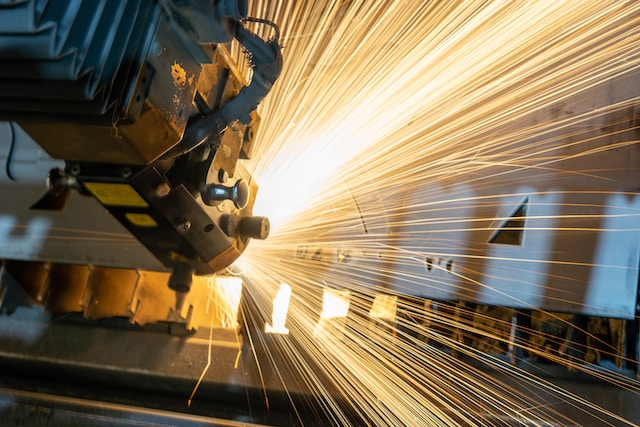Enter the world of metalworking and what stands tall in the center is the marvel of Computer Numerical Control machines, commonly known as CNC machines. Pulsating at the heart of the industry, these machines sculpt the landscape of fabrication. Let’s take a comprehensive tour of the different types of CNC machines that have transformed the industry.
What are CNC Machines
Computer Numerical Control (CNC) is a high-end automation method for machining tools, typically employed in the metalworking industry. CNC machines encompass an array of tools such as lathes, mills, grinders, routers, and 3D printers, all of which are governed by computerized controls. The automated system eliminates manual interference, thus facilitating precise, repeatable, and high-speed operations.
The Different Types of CNC Machines
Delving deeper, we find that the CNC machinery spectrum is quite extensive. Let’s explore the main types of CNC machines used in the metalworking industry.
CNC Milling Machines
An integral part of the CNC family, milling machines, are widely used due to their versatility and capacity to perform a wide array of operations.
These machines work by removing excess material from the workpiece.
Depending on the axes, they can be classified as 3-axis, 4-axis, or 5-axis machines. The more axes, the greater the precision and complexity of the tasks that can be accomplished.
Often, milling machines are used to produce parts that are not axially symmetric and have features such as holes, slots, pockets, and contours.
CNC Lathe Machines
CNC lathe machines are the connoisseurs of the art of spinning. They excel at molding the most robust pieces of metal into intricate shapes.
These machines operate by holding the workpiece in a clamp or spindle and rotating it.
As the piece is spinning, a cutting tool is applied to shape it. This process is ideal for producing parts with a cylindrical shape.
The automation in CNC lathes ensures high speed, precision, and consistency in large-scale operations.
CNC Waterjet Machines
CNC Waterjet machines hold an instrumental role in the metalworking industry, offering a myriad of advantages that have transformed traditional manufacturing processes.
Precision: It offers high cutting precision, down to 0.001 inches. This results in less material wastage and lowers the need for secondary finishing processes.
Versatility: It can cut a broad range of metals with varied thicknesses, without the need for tool changeovers.
Cold Cutting Process: No heat is involved, eliminating the risk of thermal distortion or material damage.
CNC Plasma Cutting Machines
CNC plasma cutting machines are the metallurgical maestros that can split even the thickest sheets of metal like a piece of cake.
These machines work by using a plasma torch that cuts through metal by melting it.
CNC control allows precise cutting along the programmed path, making it suitable for cutting large sheets of metal into more complex shapes.
They are often used in the automotive and construction industries due to their ability to handle large-scale operations efficiently.
CNC Grinder Machines
Another protagonist in the CNC machine ensemble is the Grinder machine, a specialist in producing ultra-precise finishes and extreme hardiness.
CNC grinders primarily function by rotating a grinding wheel against a workpiece to scrub off the material surface, resulting in a beautifully smooth finish.
They are majorly used when high precision is a must, often in the creation of car parts, bearings, and even in some types of jewelry.
The computerized control allows for a fine level of precision and repeatability that is virtually impossible with manual operations.
CNC Drilling Machines
A staple in many industries, CNC drilling machines drill holes into the metal with meticulous precision and efficiency.
CNC drilling machines work by spinning a drill bit and pressing it against a workpiece, thus creating a hole.
These machines can perform a series of drilling operations such as counterboring, countersinking, reaming, and tapping.
The computer control allows for the automation of hole spacing and depth, ensuring highly precise and repeatable results.
CNC Electric Discharge Machines (EDM)
CNC Electric Discharge Machines, more commonly known as EDMs, have a unique modus operandi that sets them apart.
Instead of a physical drill or cutting tool, EDMs use electrical discharges or sparks to shape the workpiece.
They are widely used in mold-making and tool and die industries.
EDMs are extremely precise and can produce complex shapes that conventional machining processes may struggle with.
CNC Press Brake Machines
CNC press brakes (also referred to as Computer Numerical Control press brakes) are the champions of efficiency and accuracy in the metalworking field. They are advanced machines that use a computer to control and automate the bending of metal. By eliminating the need for manual labor, they deliver unparalleled precision, save time, and boost productivity in metal fabrication processes.
The Future of CNC Machines
As technological advancements unfold, the future of CNC machines in the metalworking industry promises more sophisticated automation, greater precision, and improved efficiency.
The adoption of Artificial Intelligence and Machine Learning can make CNC machines smarter, enabling predictive maintenance, minimizing downtime, and improving productivity.
With advancements in software, CNC machines will be able to handle more complex tasks, further expanding their capabilities.
The integration of IoT (Internet of Things) will facilitate real-time monitoring and control, leading to streamlined operations and improved quality control.
Conclusion
From turning, milling, and routing, to intricate EDMs, CNC machines have revolutionized the metalworking industry. Their presence has undeniably created a paradigm shift, enabling a leap from manual, labor-intensive processes to automated, precision-driven manufacturing. As we look to the future, it’s evident that the role of CNC machines will only intensify, playing a pivotal part in the unfolding technological landscape of the metalworking industry.
In this article, we have journeyed through the different types of CNC machines that have transformed the metalworking industry. It’s fascinating to see how these machines have elevated the standards of precision, efficiency, and productivity in the industry, showcasing the power of automation.
We have attempted to provide an extensive and detailed account of the different CNC machines and their unique attributes. Our aim was to craft an engaging, informative piece that serves as a go-to resource on the subject, satisfying the curiosity and intent of the readers. Whether you are an industry professional or a novice just starting, we hope this comprehensive overview offers valuable insights into the captivating world of CNC machines in the metalworking industry.







